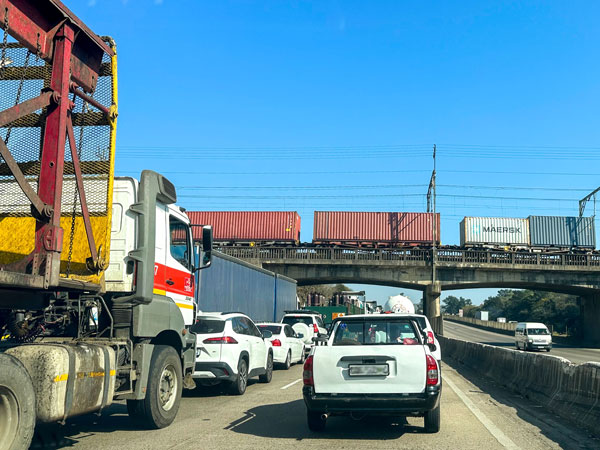
African countries are on an ambitious mission to enhance road transport efficiency, by leveraging digital technology. Digital licenses and a new generation of number plates are at the forefront of this much-needed transformation.
SPECIAL REPORT | BIRD AGENCY | African nations are in the midst of a mobility revolution, utilising digital technology to bolster road safety and combat crime.
Governments are piloting and implementing digital number plates and electronic driver’s licenses, ushering in a transformative era for navigation, law enforcement, and road security.
South Africa’s Department of Transport is to kickstart a pilot program for new digital driver’s licenses in November 2023, potentially rendering the existing licenses, in use since 1998, obsolete.
This follows the department’s successful launch of an online vehicle licensing system, with nearly one million out of eleven million vehicles in the country now digitally registered and licensed.
During a recent press briefing by Transport Minister Sindisiwe Chikunga, she emphasized that digitisation would pave the way for the effective implementation of the National Traffic Information System (NaTIS).
“Our primary goal is to establish a digital platform that efficiently addresses current challenges,” Chikunga stated.
This approach ensures consistent and timely management of services such as insurance, ownership certifications during sales and purchases, and the enforcement of traffic laws.
The move toward digitization within the road transport sector carries significant weight on the African continent due to glaring inconsistencies in its management compared to other regions.
Despite having less than 3% of the world’s vehicles, Africa accounts for 20% of global road fatalities, according to the United Nations. The World Health Organization (WHO) estimates Africa’s fatality rate at 27 deaths per 100,000 inhabitants in the sub-Saharan region, three times higher than Europe’s average of 9 and higher than the global average of 18.
The rapid expansion of the digital landscape, marked by a surge in mobile connectivity, with the number of unique mobile subscribers expected to reach 54% by 2030, offers governments a powerful tool for sector management.
Experts believe that this shift toward digitization not only promises a reduction in road transport fatalities but also ensures the efficiency of a sector that serves the majority of Africa’s population.
Transport and logistics development expert Kenneth Kabue points out that beyond safety improvements, digital alternatives will facilitate tax collection, especially for freighters and long-distance trucks.
“E-plates emit signals for monitoring and tracking processes, displaying crucial details like manufacture dates, serial numbers, and production unit numbers on the back of the plate, making it easier and faster to identify offenders and suspects,” he explains.
Apart from South Africa, Kenya, Nigeria, Algeria, Morocco, and Uganda have all initiated digital strategies targeting the transport sector.
Kenya’s National Transport and Safety Authority, for instance, is issuing chip-embedded smart licenses that maintain real-time records of individual drivers, including their traffic offenses. With the issuance of e-licenses already underway for about 100,000 drivers, the program aims to cover over 3 million drivers in the country. The government has also recently introduced new-generation number plates, mandating all vehicles to adopt them.
Pioneers like Algeria are already deep into the implementation phase of their biometric point-based driving licenses, rolled out in 2019. Uganda is also poised to follow suit, having already contracted a firm to implement digital number plates.
Road transportation is the primary mode of goods and passenger transportation in many African countries, making the continent’s road transport infrastructure a crucial driver of economic development and opportunities.
The United Nations’ Economic Commission for Africa (ECA) estimates that the African Continental Free Trade Area (AfCFTA) will nearly double intra-African trade in transport services, increasing road freight from 201 to 403 million tonnes on the continent.
This underscores the importance of enhancing efficiency and effectiveness in the sector to support these developments.
****
SOURCE: bird story agency
 The Independent Uganda: You get the Truth we Pay the Price
The Independent Uganda: You get the Truth we Pay the Price


